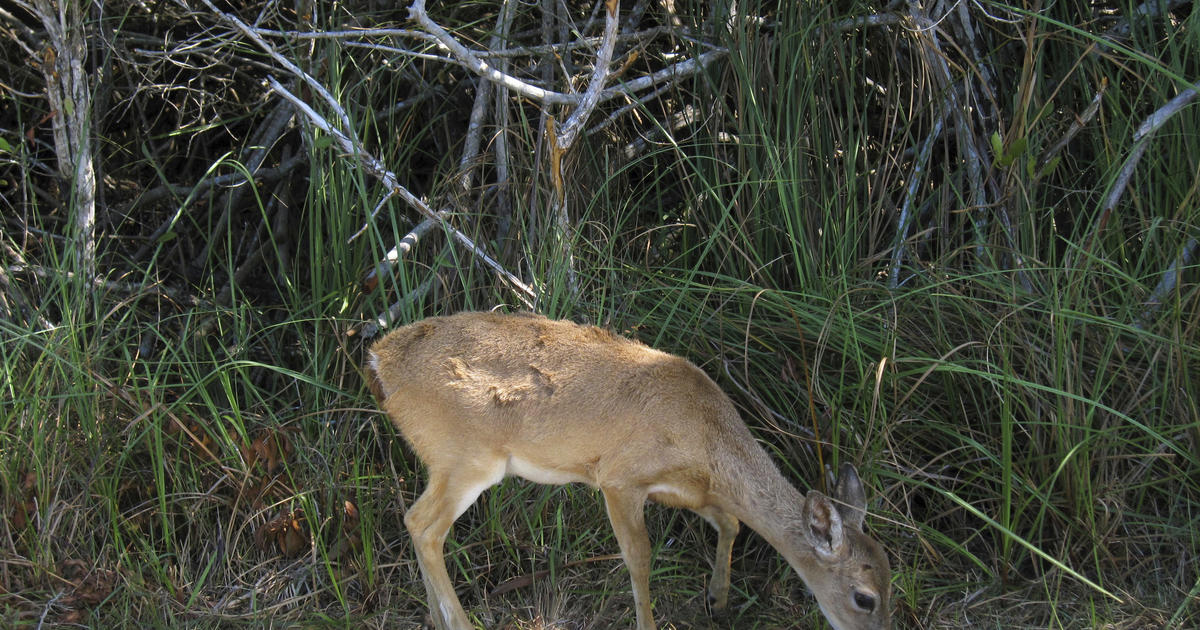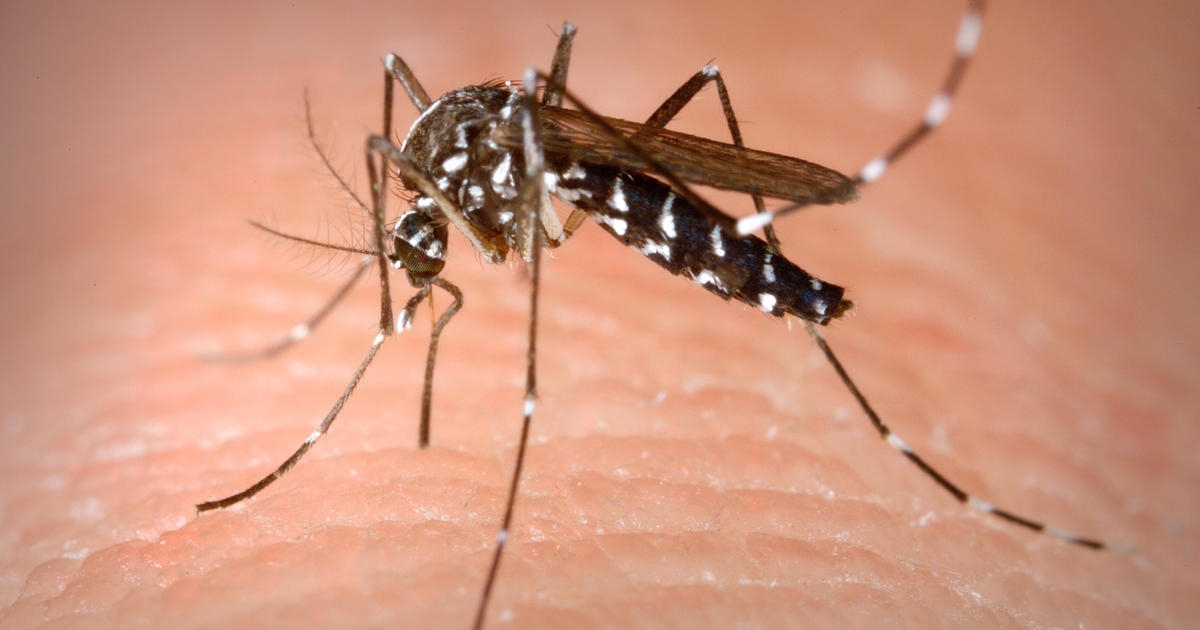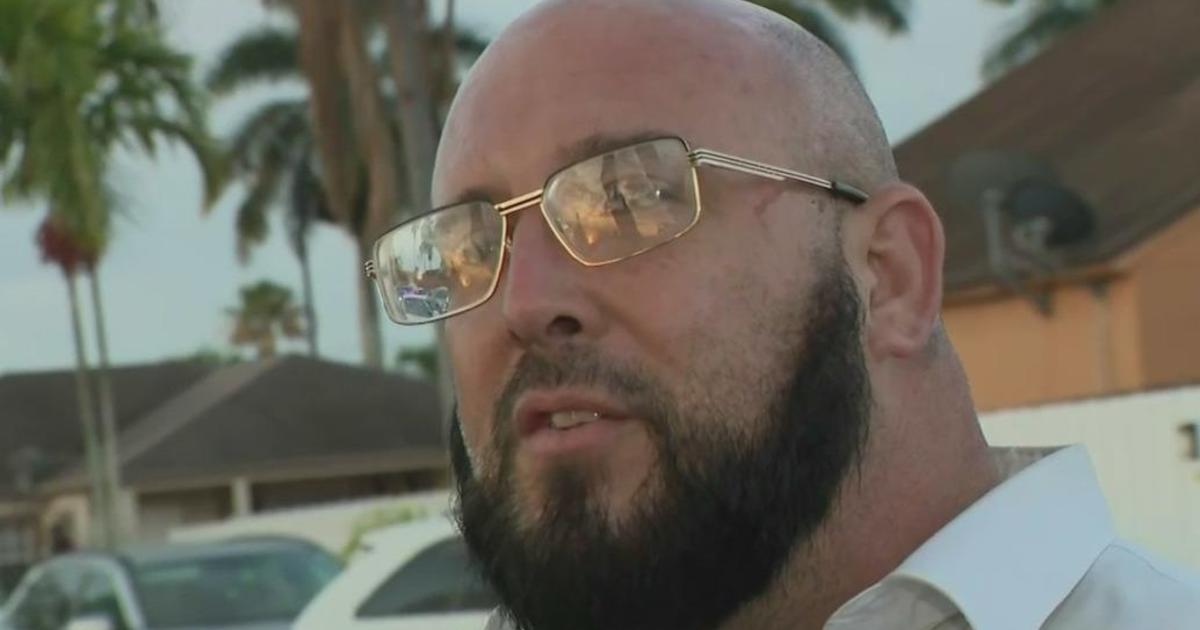Testing Confirms 2nd Case Of Rabid Wildlife In Kendall
Follow CBSMIAMI.COM: Facebook | Twitter
MIAMI (CBSMiami) – Another rabid raccoon has been found in the Kendall area which has caused the rabies zone to be expanded.
With two kids, Pablo Cardoza is avoiding going to the park for time being.
"I've seen raccoons in the neighborhood," he said. "We stay away from them."
Lab testing confirmed Saturday that a raccoon killed by a car in Kendall tested positive for rabies.
A week earlier, Kendall veterinarian Dr. Les Gersen said he was attacked by one.
"I am standing there and he comes out and attacks me, physically attacked me. Saliva everywhere," he recalled.
County health officials want to make sure people are aware of the alert so they can stop it from spreading.
"We are facing a new case of rabies in a raccoon," said Lillian Rivera with the Miami-Dade County Health Department. "It is not common to have rabid raccoons in urban areas. It is really not that common."
Miami-Dade County Animal Control passed out flyers in the zone on Saturday, warning residents about the dangers of rabid wildlife.
"If you see one out during the day, if it is stumbling around, kind of lost, call Fish and Wildlife at 311," said Adrian Diaz with Animal Services. "We will respond, but do not approach the wildlife in anyway."
DOH-Miami-Dade has extended alert boundaries as follows:
• SW 72nd Street (Sunset Drive) to the North,
• SW 128th Street to the South,
• SW 87th Avenue to the East,
• Florida Turnpike to the West.
Prior to these incidents, Miami-Dade hadn't experienced a rabies situation since 2001.
DOH-Miami-Dade is working with the county's Animal Services to identify anyone who might have been exposed to the animal.
"All domestic animals should be vaccinated against rabies and all wildlife contact should be avoided, particularly raccoons, bats, foxes, skunks, otters, bobcats and coyotes," said the Florida Department of Health. "Rabies is a disease of the nervous system and is fatal to warm-blooded animals and humans. The only treatment for human exposure to rabies is rabies-specific immune globulin and rabies immunization."
Residents and visitors are advised to take the following precautions:
• Keep rabies vaccinations up to date for all pets.
• Keep your pets under direct supervision so they do not come in contact with wild animals. If your pet is bitten by a wild animal, seek veterinary assistance for the animal immediately and contact Miami-Dade County Animal Services at 311.
• Call your local animal control agency to remove any stray animals from your neighborhood.
• Do not handle, feed, or unintentionally attract wild animals with open garbage cans or litter.
• Avoid contact with stray and feral animals.
• Never adopt wild animals or bring them into your home.
• Teach children never to handle unfamiliar animals, wild or domestic, even if they appear friendly.
• Prevent bats from entering living quarters or occupied spaces in homes, churches, schools, and other similar areas, where they might come in contact with people and pets.
• Persons who have been bitten or scratched by wild or domestic animals should seek medical attention and report the injury to the Florida Department of Health in Miami-Dade County at 305-324-2400.
The rabies alert lasts for 60 days.



